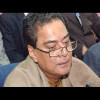A shiny day in politics
It was a different day in our politics, imbued with hope that any flashpoint could be avoided with a democratic spirit. The ruling Awami League and its rival BNP deserve praise for making this difference on Tuesday.
It was possible as both parties showed admirable restraint, paving the way for holding rallies in the capital in a peaceful manner. It is unusual in our political culture that BNP men made no complaint of being obstructed either by ruling party men or by the police from attending their rally.
In some areas, activists of the parties passed one another without creating any tension. Some local BNP leaders were even seen sitting in the police van at Nayapaltan while Khaleda Zia was addressing the rally there. Such an atmosphere was beyond imagination given the growing intolerance and confrontational culture in our politics.
Field level leaders and activists of both camps were seen jubilant for the peaceful atmosphere. Talking to a number of private television channels, they spoke for a healthy political culture.
A senior official of Dhaka Metropolitan Police (DMP) told The Daily Star that law enforcers were very satisfied with peaceful completion of the political programmes though many violated the conditions police imposed on the parties about holding the rallies.
"As the programme was progressing in a peaceful manner, we did not care about violation of some conditions," explained the DMP official, wishing anonymity.
The peaceful completion of the programmes marking the second anniversary of the 2014 parliamentary election has given much relief also to city dwellers who feared violence around this time. Many of them reportedly limited their movement on Tuesday out of fear.
The way the shiny Tuesday finally made us all happy has become a glaring example of how political tolerance and compromise can achieve success.
The top leaders of the AL and the BNP should keep it in mind that it has been possible only for their goodwill to avoid confrontation.
The last year's horrific incidents are still vivid in our minds. We witnessed how confrontational politics could generate large-scale unrest, killing people and threatening to destroy the country's economy.
All of it was triggered by rows about holding rallies on January 5 last year, the first anniversary of the one-sided 2014 parliamentary election boycotted by the BNP-led 20-party alliance.
Both sides were arrogant and intolerant then. The government refused to grant BNP the permission to hold its planned rally to observe January 5 as the "democracy killing day." The BNP responded by defying the police ban while police kept Khaleda confined to her Gulshan office by blocking the roads in front of her office with sand-loaded trucks. Her party men were given no scope either to take to the streets as police went tough on them. Only the ruling AL men were in the streets, celebrating the day as "Victor Day for Democracy".
An angry Khaleda called for a countrywide non-stop blockade from January 6 to topple the government. The political programme which went on until the last week of March turned violent.
At least 95 people were killed and about 1,500 injured in arson attacks on public transports. Most of them were ordinary citizens. Another 45 got killed in "shootouts" with law enforcement agencies. About half of them were allegedly involved in arson attacks. The economic loss from the blockade and shutdown was enormous.
Finally, the BNP failed to achieve its goal as the movement lost direction due to violence. Its movement in 2013 and 2014 failed to realise its popular demand for restoration of an election time caretaker government for the same reason.
This year, however, good sense prevailed in both the camps.
The BNP was first denied permission by the police to hold its rally at Suhrawardy Udyan as its rival AL, too, sought permission to hold rally there. The party later asked for holding a rally in front of its central office in Nayapaltan.
There was uncertainty over police permission. But then BNP's acting secretary general Mirza Fakhrul Islam Alamgir in a press conference on Monday morning made it clear that they would not call any confrontational programme even if they were not allowed to hold a rally in the capital. The announcement contributed to finally getting permission. This announcement also showed their realisation that violent agitation never brings good results.
The government, on the other hand, seems to have changed its strategy to deal with the BNP by allowing it to hold the rally on Tuesday. In her speech, Khaleda Zia also refrained from calling any agitation programme against the government.
The AL policymakers should reassess its political strategy now that it is evident that allowing the BNP to stage demonstration against the January 5 election has not caused the fall of the government. They should give the BNP more space to carry its lawful political activities to uphold democracy. The effort to suppress the BNP will generate only instability and uncertainty in politics, weakening the democracy.
Both sides should keep in mind that arrogance in politics and failure to resolve differences through discussion have brought disaster in national life in 1994-1996, 2006 to early 2007, and in 2013, 2014 and the latest in 2015.
Despite massive deterioration of political culture, Tuesday's peaceful programme somehow generated a ray of hope for a change in our politics.
To keep the healthy vibes alive, the government policymakers and the AL should take the lead to put politics on right track for the sake of the country's democracy.

 For all latest news, follow The Daily Star's Google News channel.
For all latest news, follow The Daily Star's Google News channel. 








Comments